“Let’s go round the room, introduce ourselves and explain what we’re doing here today”
This sentence that makes our palms go sweaty and our brains go blank. But why?
As the world of the personal and the professional collide, it has never been so important to be able to direct our own story, but the multitude of advice on ‘personal brand’ (a phrase with true ‘ick’ factor!) can be overwhelming. People struggle with how to be ‘authentic’, ‘personal’ and ‘relevant’, three words that run amok in this space.
For a generation of millennials (and older) who are back on the market after yet another wave of redundancies, this problem is suddenly urgent. Our generation didn’t necessarily grow up sharing every aspect of our lives, or creating a platform for ourselves. And, for many, it feels wholly uncomfortable.
We’ve reviewed the proliferation of books, articles and key voices in this space. The outcome? We can’t help thinking that much of it is utter BS.
There are exceptions of course (and we’ve interviewed them for the benefit of our subscribers), but the fact remains that much of the literature on personal brand is generic and superficial…or at the other end of the scale, awash with jargon.
Often, guidance seems to operate on the premise that one day, you’ll have a pinnacle moment of discovery in the race to ‘find yourself,’ and from that point, all you’ll have to do is tell that story authentically to exert a magnetic draw.
Also, a lot of the thinking assumes that having an excellent personal brand IS the goal - rather than a necessary path towards something else.
We see 3 big challenges that hinder people in this space
WHY do you need to get better at telling your story? Yes, we live in a world where LinkedIn seems to rule all, but that can’t be the only reason. If you don’t have a clear ‘why’ your storytelling is unlikely to be effective.
Our ‘why’ might be something that forces immediate action (redundancy, promotion, pay rise). But the likelihood is that you are much more likely to navigate those moments if you’ve thought about them ahead of the moment of change..
Let’s start by thinking of some of the reasons why a powerful personal brand story might help you to get somewhere. Here are four classic motivations, with some real-life examples of people we feel are nailing their story against these kind of goals:
Change Direction
When we’re uncertain of our story, our fall-back is often our Job Title or specific professional experience. In his book ‘Reinvent Yourself’, James Altucher talks about the power of breaking free from this definition and finding what you’re really passionate about.
It doesn’t have to be a lifelong goal, it could just be as simple as ‘this is the kind of thing I enjoy, and I’d like to do it as much as possible’. Sally Hogshead talks about finding your ‘fascination advantage’ in her book ‘How the World Sees You’. The trick is then to doggedly (and visibly) pursue those things that you enjoy.
Check out the following examples:
Tiffanie Darke: Rule of 5
Industry favourite Tiffanie Darke is a fashion editor and writer, with prior roles as Editor of Sunday Times Style Magazine and Editor-in-Chief of Harrods. Lockdown led to a re-skilling in business and sustainability; and in 2023 Tiffanie launched the ‘Rule of 5’ campaign. This is a challenge derived from the ‘Hot or Cool institute’s guidance that we all need to buy no more than 5 new things to be in line with sustainability targets.
For a fashion editor to focus on the restriction of consumption seemed like a paradox to say the least, but through expert interviews and editorial and personally going through the journey, Tiffanie was able to change the direction of her story. The campaign has continued to expand at pace. More on Tiff’s Substack here:
Marta Puerto: The Video that Broke LinkedIn
Marta is a recently laid off former product marketing manager, who went viral for releasing a video that markets her skills and USP’s in an incredibly crowded market.
Taking control of her own storytelling paid off, with more than 1m views of the video; and a narrative emerging about the unreasonable challenges of the current job market. More than expressing her own skills, the video demonstrated numerous other aspects of Marta’s skill set, not least her creativity and resilience against numerous instances of not hearing back on roles she applied for.
Be The Expert
There is power in building IP into your thinking and approach, whether you want to double down on a certain area, pivot the perception of what you’re good at, or provide guidance and inspiration for talent that comes after you. In a hybrid world, it also helps create relationships inside companies and have people be more familiar with your skills. Check out:
Zoe Scaman: Founder of Bodacious strategic studio
Voice of disenfranchised women in advertising, and future thinker who specialises in fandom and tech, Zoe has forged an infamous profile in the communications industry. In particular she’s known for her viral piece ‘Mad Men, Furious Women’ calling out sexism and misogyny in the ad industry, a theme which she continues to campaign against.
She’s clear on her USP’s, challenges the industry on a regular basis around her greatest areas of passion and knowledge, but strives to support others by releasing and co-creating her thinking with her followers alongside a plethora of other resources.
Find out more about Zoe’s work here
Lenny Rachitsky: The ultimate resource for product innovation
This is a typically understated introduction that belies the power of Lenny’s communications. He has 600,000 subscribers for a newsletter that focuses on product, growth and start-ups; and a podcast that counts guests such as the CTO’s of Netflix and Meta, Rory Sutherland of Ogilvy and Dalton Caldwell of Y Combinator as guests. Everything that Lenny offers is humble, but with clear value adds from speaking to the best in the industry.
Find the newsletter & the podcast here:
Shake Things Up:
Frustration is a powerful motivator, and for those who see a route to do things differently, can result in a story that differentiates and creates its own energy and direction.
Stefanie Sword-Williams: Founder F**k Being Humble
Stefanie looked at the careers industry and found a ‘corporate, quite stuffy’ space; one in which people (and women in particular) struggled to advocate for themselves and saw it as a chore. The result is a forthright brand that is connected to the real issues that people are facing, because Stefanie is present in the conversations that people are having on the ground.
A recent example? In a week where International Women’s Day has been torn to the ground for a lack of action vs superficial representation, Stefanie took a different route. Asking Men ‘for more’ has chimed with the LinkedIn audience, with engagement figures spiralling as we speak.
Find out more about F**k Being Humble here:
Scott Morrison: Founder of The Boom!
If you’ve been a recipient of The Boom! you’d know it. Scott repackaged his experience as a challenger in the C-suite of some of the world’s most known brands into a single operating system - Unblock, Unlock, Unleash. He positions himself as a partner to C-suite leaders, powering them up for success, creatively, commercially and culturally.
This thinking comes to life in his book, his speeches and through the numerous programmes of inspiration he delivers. You can find more here.
Make a Difference
As we said at the outset, not everyone has, or will ever aspire to have, a ‘higher purpose’ in their professional or purpose lives, but for those who find it, aligning behind a single goal can be incredibly impactful.
“There’s a difference between what you’re known for and what you’re remembered for” - Stefanie-Sword Williams, founder F**k Being Humble
In Stefanie’s case, whilst she wants to be known for being a phenomenal speaker and disrupting the careers industry, she wants to be remembered for being generous, with her time, knowledge and energy.
Check out:
Mother Pukka: #FlexAppeal
Anna Whitehouse launched #FlexAppeal in 2015 after having been refused flexible working in her own job. Almost 10 years later she has influenced flexible working legislation, become a radio presenter on Heart, has her own podcast ‘Dirty Mother Pukka’ and has written several books. She’s the honest voice of the modern day family and this thread is evident through everything she does.
Find out more about Anna here
Kian Bakhtiari: The People
Kian founded ‘The People’: a creative agency powered by a global community of 150+ young changemakers. Their mission is to ‘unleash the creative potential of young people’ and they deliver work like the creation of a Global Youth Advisory Board for Pentland Brands. He’s comfortable confronting the status quo, and calling out those that pay lip service to doing the same.
With all of these stories, the individuals haven’t just considered the WHY of their own story, but also the WHY of the recipients of that story.
WHY should they take notice?
WHY should they care?
WHY should they do anything about it?
On which, more later…
Do you see telling your story as a chore? Many do.
“We call it personal branding, but really we mean professional branding”
- Stefanie-Sword Williams, founder F**k Being Humble.
The professionalisation of our storytelling is what gives us the ‘ick’ about this topic in general. It feels forced and fake, which is why our ‘Why’ becomes so important.
But even when we are clear on our ‘why’ it can be difficult to tell our story in a way that feels honest, simple and interesting. However, when we unlock it, it’s a superpower, as explained by Tracy de Groose, founder Brilliant Misfits and Deputy Chair Cancer Research UK:
I know when I am telling a story well, it’s when I feel the energy almost flowing through me. And it's almost like you become otherworldly. It's taking on an energy itself. And that was not always easy for me to do when I was younger.
But the more I digested stuff from outside of me, but then sat with it and made it my version, the more I could make it mine and reflect on it and think about it, about how do I retell that story or that idea or that concept or something new.
And so I think I convey energy with my ideas. And I think energy goes out that other people can feel and connect into, and it creates authenticity. And it creates impact. I think it really makes people sit up and listen.
What stops us doing this with ease? There are 2 big reasons:
(1) Imposter syndrome affects most of us: is our story worth telling?
Imposter syndrome is something that most of us face, particularly as the stakes get higher, in fact:
70% of C-suite executives
75% of women in leadership roles
62% of entrepreneurs / start-up founders
The first step to addressing this is recognising the validity of our own stories, as quoted by Mark Leruste, author of ‘Glow in the Dark: how sharing your personal story can transform your business and change your life”
“One of [the barriers] is I don’t see how my story is relevant, or my story is dull, or boring, or I don’t have something interesting, like a Hollywood Story with a sob story. So why would anybody be interested?
The quick answer to that is ‘what you suffer from is proximity bias’. It’s the idea that when you’re so close to something, you actually don't see its own value, but it’s standing on a mountain of value that your story holds”
Gaining confidence in our own abilities and talking about them is actually a skill we practise, not a feeling, according to ‘The Confidence Gap’, Dr Russ Harris. He talks about the ‘confidence cycle’ (pictured below), and the need to transform your relationship with fear, so that it fuels you trying things, rather than preventing you from starting.
(2) We need to recognise that we are ‘Directors’ not ‘Tellers’ of our Story
Secondly, the world in which we tell our stories has transformed. LinkedIn is no longer the sole preserve of professional content. It’s now the home of content on family, friendships, health, politics and more, often with a tenuous link to our personal lives. And our story isn’t only confined to the social space. It’s present in conversations, interviews, events, any interaction we have with another human being.
Appreciating that you have control of the story you tell is a game changer. It enables you to reframe how you go about telling your story in a more natural way. Gary Vaynerchuk refers to ‘documenting’ rather than ‘creating’ when you are talking about your story (Crushing it - Gary Vaynerchuk). People enjoy a peek behind the scenes, the process of you learning, failing. He urges people not to ‘start when they’re perfect’.
But boundary-setting is crucial here. Stefanie Sword-Williams recommends that you compartmentalise your story. If you don’t want your senior client to know about your struggles getting the kids to school, or to glimpse bikini clad photos of you, keep them to a personal social space, disconnected to your professional one. If you want to be seen in a different way by your peers and clients, start to tell that story. If you want to show different sides of your story, think about the different places and spaces those narratives can come to life. If you want to break the rules of a platform because it feels more natural to your way of storytelling, do it (@reesamteesa ‘s ‘Who the F**k did I marry on TikTok is an excellent example).
But unless absence from the dialogue is your goal, it may be time to leave behind any remaining reluctance you have in sharing your story in the online space. The reality is you DO have a story that lives online. It lives in the comments you make, the people you follow, the links you share. Even if you haven’t been intentional about it, others will form their own opinions.
We’ve fought hard for our successes, so our stories are deeply entrenched with emotional attachment. In particular, the further we are along our journey, the more difficult we find it to say less.
This is where the problems start. If we say too much, we say very little.
Of course, our stories change over time. They are not static, but they can’t just keep getting longer and longer to encompass all of our experiences. We have to let go of parts to take on opportunities that are to come.
Stefanie Sword-Williams recommends ‘moments of self reflection’. To continually check in with what’s important to you, now. It might not be the same as last year, and that’s ok.
Ultimately ‘too short’ is not a criticism that is levied on many people’s articulation of any story, so it’s something we can all continually improve on.
One of the best pieces of advice we found was from ‘Smart Brevity’:
“Stop when you’ve finished, don’t keep talking”
So what do we do about these problems?
When we run professional brand workshops, we help people use the central tenets of effective storytelling to tell their own story.
This has to start with understanding why you are telling your story - what does it have to do for you? This provides the lens to combat the problems we’ve talked about here, and to work through 3 solutions:
(1) Be clear on what you need people to know:
We explore the concept of jeopardy. Where are you showing up in other people’s life stories? What problems do you help them to resolve
(2) Retain your unique sense of character:
We help you to define your unique role - and how to bring that to life with behaviours, and with examples.
(3) Leave the right things out.
We help you refine your story to a recognisable shape, with key chapters, and to think through how and when to flex for different audiences and situations.
In our next post, we’ll help our subscribers work through all the stages you need to be the Director of Your Own Story, using the following framework:
Paid Subscribers will get:
Full explanation of the StoryBoard and how to apply it to their story
A live session online to work through each stage, with Q&A
Access to all expert videos including:
Stefanie Sword-Williams: Founder F**k Being Humble
Mark Leruste: author of Glow In the Dark
Tracy de Groose: Founder Brilliant Misfits and Chair Cancer UK
James Smythe: Award Winning Novelist and Screen Writer
Be part of a learning community, with access to a monthly inspiration & action format, with future themes including:
The Big Reset: Reinventing annual planning (for you and your business)
Trouble in Paradise: How to get teams aligned in times of change
The Robots are Coming: Getting ahead of big tech changes
Our free subscribers will get:
Access to the framework
Monthly newsletter
Happy StoryTelling! Here’s the link if you want to carry on building your story
Be The Director: Build your StoryBoard
·Wouldn’t it be great if you just knew the best way to pitch yourself in 30 seconds, in any scenario? Better than that, to feel natural in doing so, without any of the ‘ick’ factor? That’s the goal of this piece. We all feel uncomfortable in scenarios that require the dreaded ‘elevator pitch’, be it in person or virtual. We plan to give you the skills so that telling your own story becomes something that you do with ease.
Thanks so much for reading. If you’re interested in diving into the topic of telling your personal story, or organising a session with LookUP, contact caroline@wearelookup.com







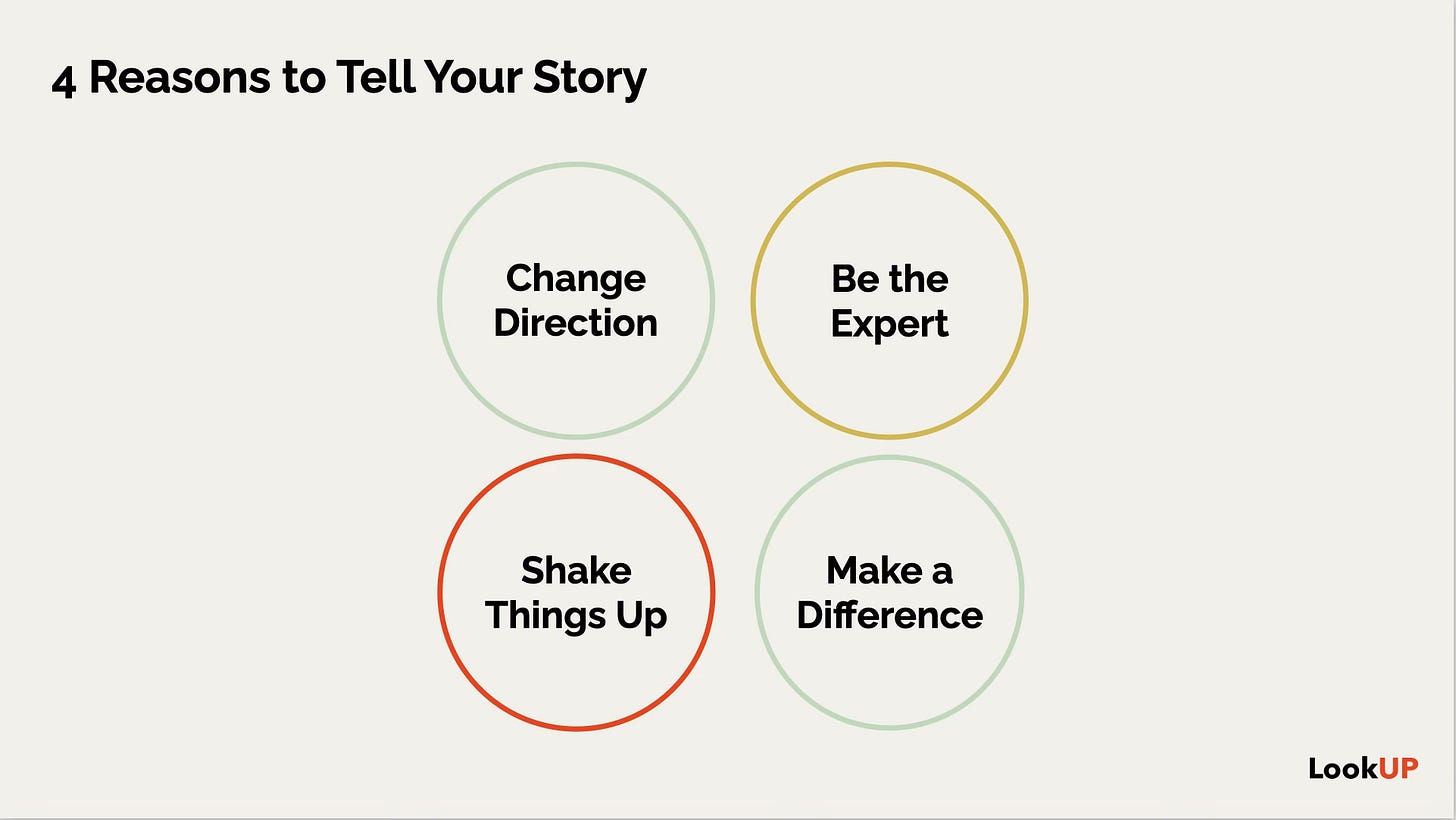
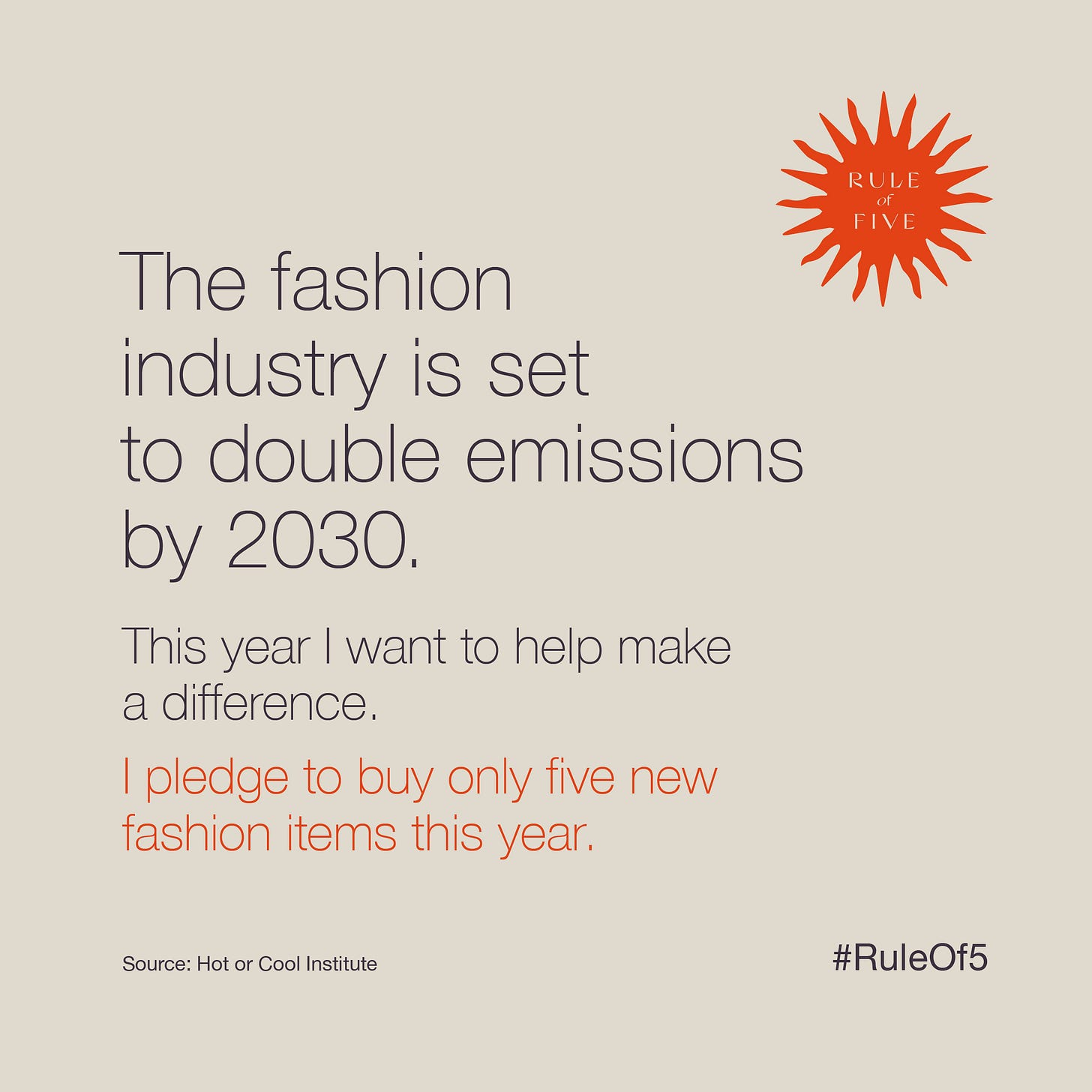






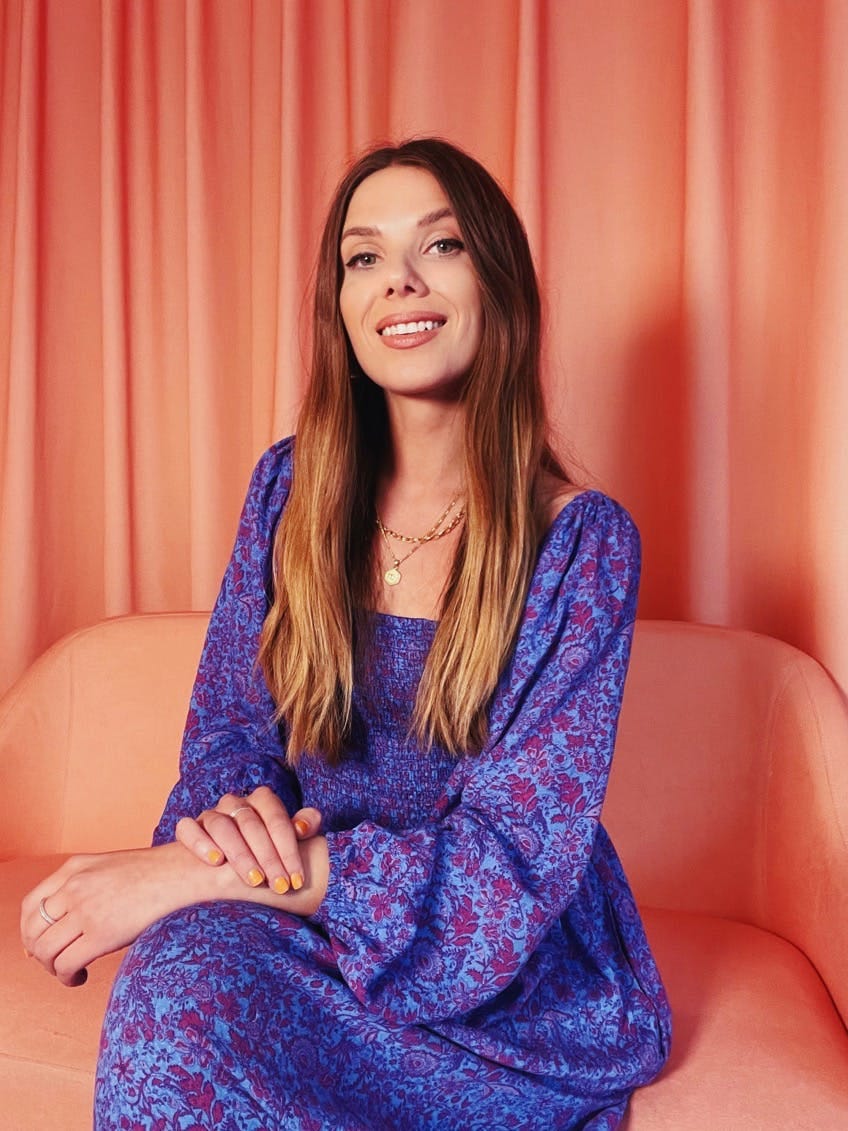

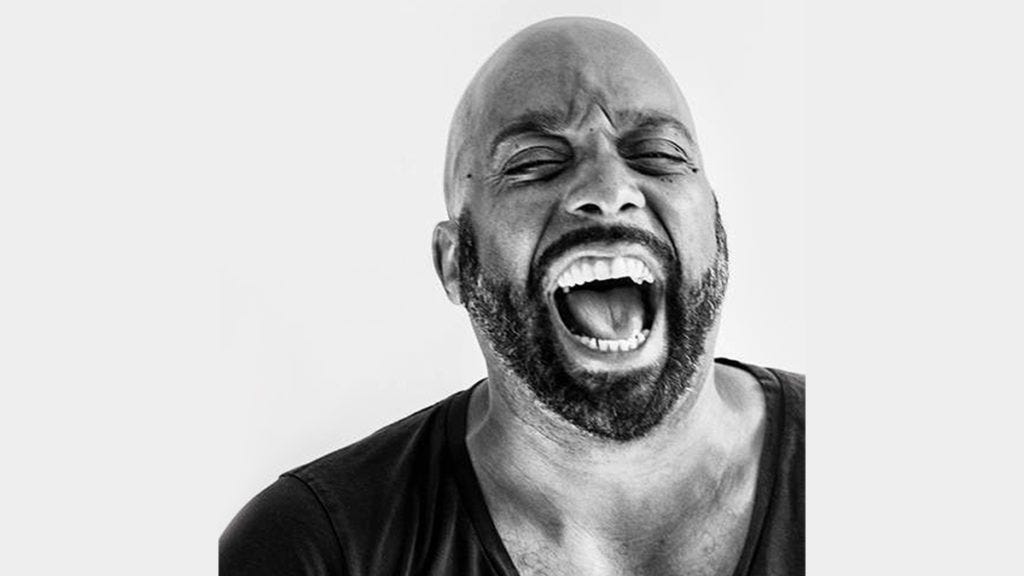

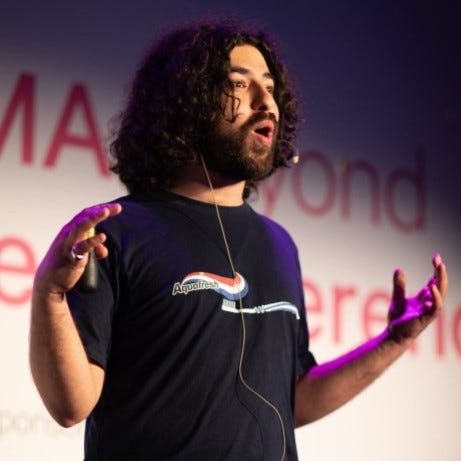

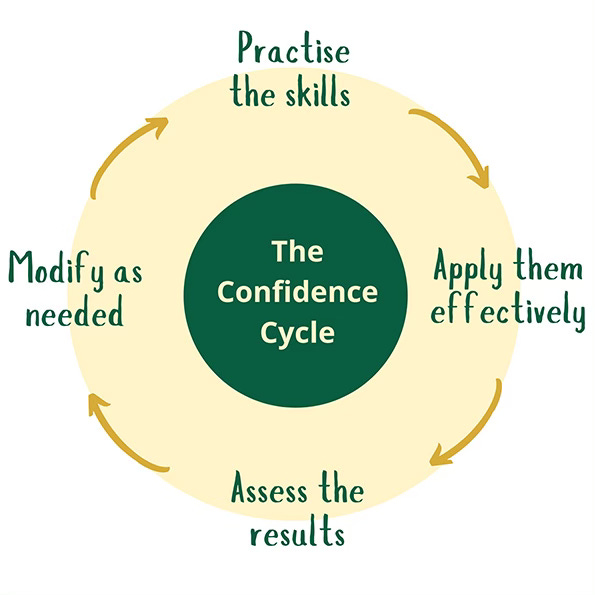




I completely LOVE this. Looking forward to more tomorrow...